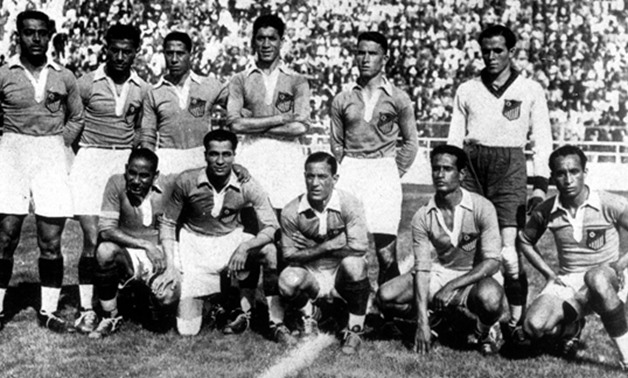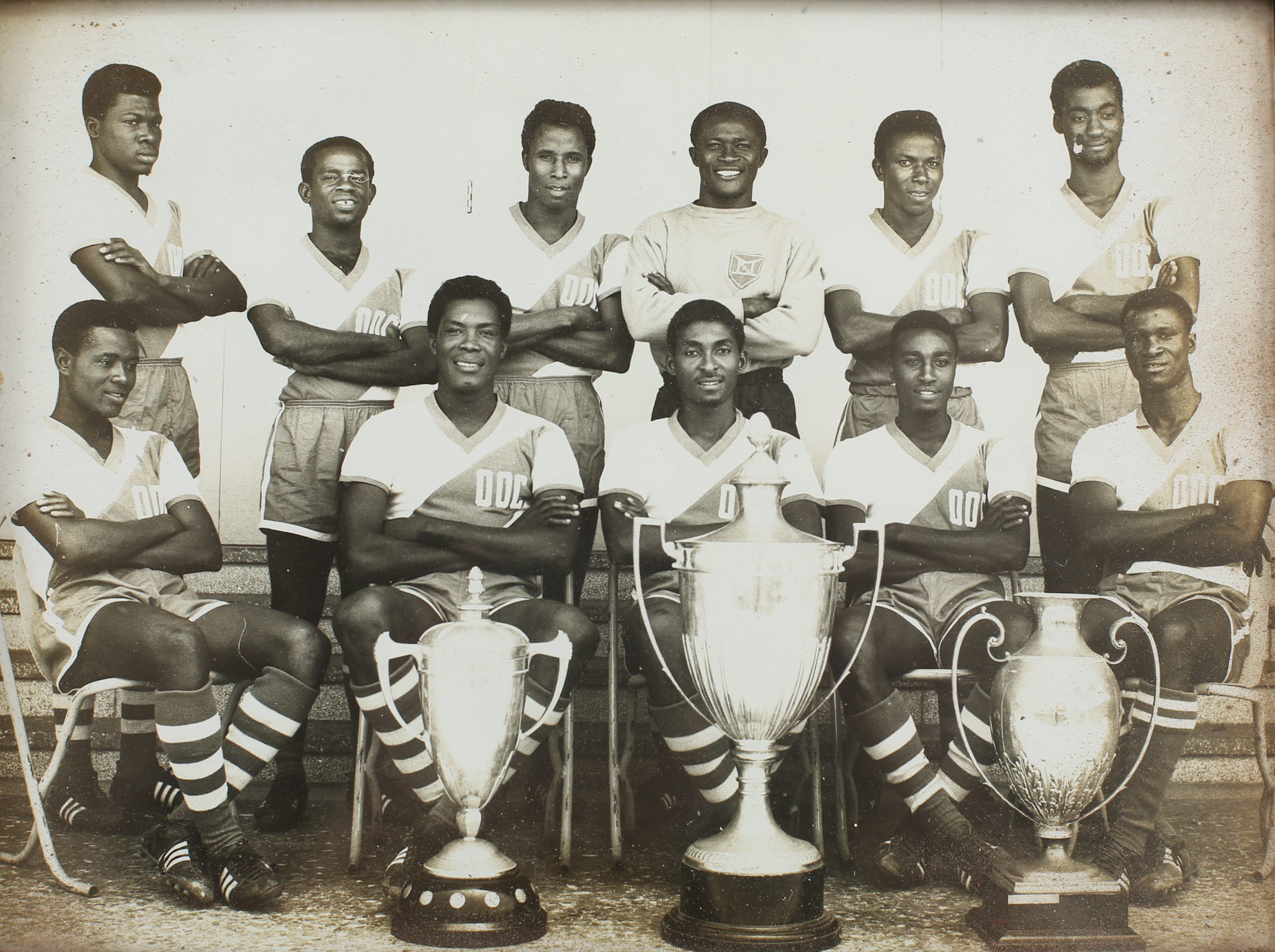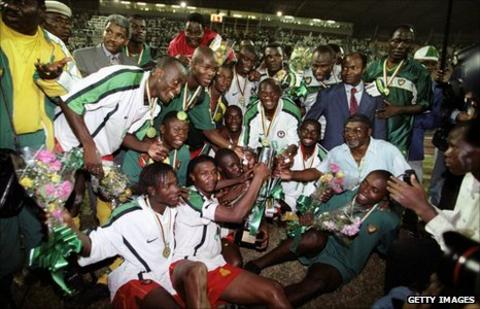The Africa Cup of Nations, more popularly known as AFCON, is the biggest international association football competition in Africa organised by the Confederation African Football (CAF).
The tournament is regulated by the Confederation of African Football, football’s governing body in Africa and is recognized by FIFA. The first competition was held in 1957 and it featured only African nations who had established football associations at the time. Egypt, Sudan, South Africa and Ethiopia proposed the creation of the Confederation of African Football during the third FIFA congress held in Lisbon in June 1956 as well as a continental football tournament.

The competition was eventually held in February 1957 in the city of Khartoum, Sudan. South Africa insisted on selecting only white players for their squad due to its apartheid policy. This led to their disqualification from the tournament and as a consequence Ethiopia were handed a straight route to the final where they lost to Egypt who had beaten hosts Sudan in the other semi-final.

This victory began the dominance of Egypt at the African Nations Cup as they hosted and won the competition again two years later. In 1962, six other nations joined the founding three so teams had to play one another to qualify for the semi-finals. Nigeria and Tunisia joined reigning champions Egypt, and hosts Ethiopia in the last four. Egypt’s reign as champions finally ended after they lost to Ethiopia in Addis Ababa after extra-time.
Since then, the tournament has grown so much that it has become necessary to hold a qualifying tournament. The number of participants that reach the final tournament has also grown from the 3 teams that started in 1958 to 24 in 2019. From 1996 to 2017, 16 teams participated in the AFCON Finals ( apart from 1996 and 2010 when Nigeria and Togo withdrew respectively).
The 32nd edition of the Africa Cup of Nations will hold this summer of 2019 in Egypt who are still the most successful nation in the cup’s history. The Pharaohs have won the tournament a record of seven times. This includes the time when Egypt was known as the United Arab Republic between 1958 and 1961.
Cameroon and Ghana have also enjoyed great success in the competition having conquered Africa five and four times respectively making them the most successful nations after Egypt. Three different trophies have been awarded during the tournament’s history, with Ghana and Cameroon winning the first two versions to keep after each of them won the tournament three times.

The Black stars of Ghana established themselves as a force to reckoned with in African football as early as the 4th edition of the tournament in 1963. They hosted the competition and won it on home soil by defeating Sudan in the final. They proved that their victory in 1963 was not a fluke by repeating their title winning performance in Tunisia two years later despite selecting only two players from the 1963 team.
Ghana reached the next two finals (1968, 1970), but lost both times to Democratic Republic of Congo (Zaire) and Sudan respectively. The tournament was televised for the first time during the 1970 tournament in Sudan, as the hosts lifted the trophy after defeating Ghana—who were playing their fourth consecutive final. Sudan’s victory in 1970 also ended the dominance of Egypt and Ghana who had won four of the first five tournaments.

Six different nations won titles from 1970 to 1980: Sudan, Congo-Brazzaville, Zaire, Morocco, Ghana, and Nigeria. Zaire’s second title in the 1974 edition (they won their first as the Democratic Republic of Congo) came after facing Zambia in the finalk.
For the only time to date in the history of the competition, the match had to be replayed as the first contest between the two sides ended in a 2–2 draw after extra time. The final was re-staged two days later with Zaire winning 2–0.

Morocco also won their first title in the 1976 African Nations Cup held in Ethiopia and Ghana claimed its third championship in 1978, becoming the first nation to win three titles. As the first winner of three African Cup of Nations tournaments, Ghana obtained the right to permanently keep the original silver trophy named after the first CAF President Abdelaziz Abdallah Salem, in 1978.
The 1980 tournament saw the rise of another super power in African football as the Indomitable Lions of Cameroon began their decade of dominance. Between 1980 and 1990, Cameroon managed to reach the final of the African Cup three times in a row, winning the competition twice in 1984 and 1988 and losing once on penalties against Egypt in the 1986 edition.

The only team that tried to match Cameroon during this period was Algeria. The Desert Warriors made the continent proud on the global stage with their solid 1982 and decent 1986 World Cup appearances. However, they failed to secure the Nations Cup as the North African nation lost in the final against hosts Nigeria in the 1980 tournament allowing the Super Eagles to capture their first championship. After the 1980 edition, Algeria reached the semi finals of every edition expect the 1986 cup until they eventually won the competition in 1990.
The Super Eagles of Nigeria also established themselves as a stronghold in African football after becoming the ‘Giants of Africa’ for other reasons. Nigeria, who had just qualified to the World Cup for the first time in their history, won the 1994 tournament in Tunisia. The Super Eagles beat Zambia, who a year before had been struck by disaster when most of their national squad died in a plane crash while traveling to play a 1994 World Cup qualification match.

South Africa returned to the competition for the first time since they were disqualified from the first edition of the tournament. They hosted the 20th edition of the competition in 1996, marking their first ever appearance after a decades long ban was lifted with the end of apartheid in the country and a failed attempt to qualify in 1994.
Nigeria pulled out of the competition for political reasons and could not defend their crown. Bafana Bafana won their first title on home soil, defeating Tunisia in the final.
The 2000 edition of the Africa Cup of Nations was a historical one as Ghana and Nigeria co-hosted the competition. This was the first time that two countries would host the tournament. Nigeria lost a pulsating final on home soil to the Indomitable Lions of Cameroon who claimed their third title. They defended their crown two years later to become back-to-back champions for the first time since Ghana in 1962.

The 2004 edition saw hosts Tunisia beat fellow North-Africans Morocco in the final to lift the title before another period of dominance emerged in the competition. Egypt finally reclaimed their spot as the top team in African football after winning three consecutive titles ( 2006, 2008, 2010) for the first time in the history of the competition.

The current gold-plated trophy was first awarded in 2002 and with Egypt winning it indefinitely after winning their unprecedented third consecutive title in 2010.
In 2008, FIFA president Sepp Blatter expressed a desire to see the competition played in odd-numbered years so it does not clash with the FIFA World Cup. This wish was finally granted when CAF made the decision to shift the tournament to odd-numbered years. After the 2012 edition which was hosted by Gabon/Equatorial Guinea and won by Zambia, another edition was held in 2013 in South Africa and it was won by the Super Eagles of Nigeria.

The 2015 edition was won by the golden generation of Ivory Coast who had a lot of superstars that played in some of the best clubs in Europe. Although they had a galaxy of stars and had impressed in the previous competitions, they were unable to win the title until 2015 despite reaching the finals of the 2006 and 2012 editions.
In 2017, two super powers of African football, Egypt and Cameroon clashed in the final of the competition which was hosted by Gabon. Cameroon secured their fifth title and first since 2002 after a 2-1 win over Egypt. Egypt won the rights to host the 2017 edition and would be hoping to build on their great success in the competition by lifting another title on home soil.

Over the years, the African Cup of Nations have produced legendary stars like Abedi Pele Ayew, Samuel Eto’o, Didier Drogba, Emmanuel Amuneke, Rigobert Song, and Aboutrika. Fans of African football will hope to see the best players the continent has on offer during the 32nd edition of AFCON in Egypt.
What do you hope to see at the 2019 AFCON with begin June 21?















0 comments: